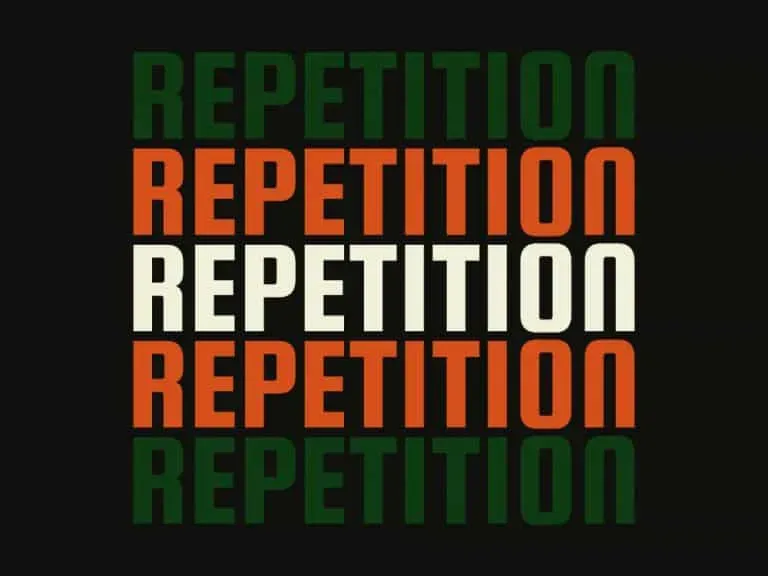Repetition and creativity are often viewed as opposing forces, yet they can work in perfect harmony to foster innovation and personal growth. In a world where learning through repetition lays the groundwork for mastery, it’s the creative variations introduced in this process that ignite true exploration. The interplay between creativity in learning and the robust practice of revisiting ideas or tasks helps individuals discover new pathways to success. Embracing the benefits of exploration through repetition allows us to evolve our understanding and capabilities, whether in artistic endeavors or intellectual challenges. By engaging our mental effort in such repetitive yet innovative ways, we not only enhance our skills but also enrich our lives with a sense of purpose and joy.
The dynamic relationship between consistent practice and imaginative thought reveals how foundational skills are developed. This iterative approach not only encourages mastery but also opens up avenues for novel insights and solutions. Engaging in repetitive actions, such as experimenting with cooking techniques or crafting music, allows for a deeper understanding of the underlying principles at play. By embracing variation within repetition, individuals can navigate complex challenges with greater ease and creativity. As we explore the intricate dance of improvement and invention, it becomes clear that creativity thrives in environments where exploration and experimentation are part of our routine.
The Power of Learning Through Repetition
Learning through repetition is a fundamental concept in education and personal development. It empowers individuals to grasp concepts more firmly over time. By revisiting material, whether through practice problems, musical pieces, or project iterations, we engage in a process that deepens our understanding. This repeated exposure not only reinforces the original lesson but also catalyzes our capacity for retaining information. It’s a technique well-known to educators and trainers: the more we learn through practice, the more natural skills become embedded in our memory.
Moreover, the practice of learning through repetition creates a framework for mastery. For instance, musicians habitually play scales or intricate compositions repeatedly until they achieve a level of accuracy and emotional depth that transcends mere technique. Each repetition is an opportunity to explore nuances and variations, inviting creativity in how notes can be expressed. This dynamic allows learners to discover their unique interpretations, which ultimately contributes to personal growth and enhanced cognitive capabilities.
Frequently Asked Questions
How does learning through repetition enhance creativity in learning?
Learning through repetition allows individuals to refine their skills and insights over time. This process fosters creativity by encouraging exploration and variation, enabling learners to develop new approaches and adapt their techniques. By attempting a task repeatedly, we not only perfect it but also uncover innovative solutions through trial and error.
What are the benefits of exploration through repetition for enhancing creativity?
Exploration through repetition helps individuals push boundaries and discoveries. As tasks are repeated, variations can lead to unexpected results, nurturing creative problem-solving skills. This method promotes a deeper understanding of concepts and encourages individuals to innovate, resulting in a richer learning experience.
Can artificial intelligence contribute to creativity in learning through repetition?
Yes, artificial intelligence can enhance creativity in learning by generating multiple iterations of a concept or idea. A.I. tools can analyze past attempts, suggest variations, and provide instant feedback, allowing learners to explore diverse possibilities and refine their creative processes more effectively than traditional methods.
How does mental effort contribute to growth through repetitive tasks?
Mental effort during repetitive tasks fosters growth by encouraging reflection and adaptation. Each cycle of repetition allows learners to assess what worked and what didn’t, promoting cognitive development. This engagement with challenging tasks not only builds resilience but also enhances problem-solving abilities and creativity.
What role does variation play in the process of repetition and creativity?
Variation is crucial in the repetition process as it injects novelty into familiar tasks, preventing stagnation and enhancing engagement. By mixing up approaches and introducing new elements during repetitive practices, learners can spark creativity, resulting in fresh ideas and improved skills.
How can repetition in artistic pursuits, like painting, lead to increased creativity?
In artistic pursuits, repetition allows artists to explore different techniques, styles, and interpretations. By repainting subjects or experimenting with materials over time, artists discover new perspectives and depths of their work. This iterative process not only hones technical skills but also enriches the creative mindset.
What is the link between mental effort and personal growth achieved through repetition?
Engaging in mentally challenging repetitive tasks leads to personal growth by enhancing cognitive capabilities and fostering resilience. As individuals invest effort in honing their skills, they cultivate a growth mindset which encourages continuous learning and creativity, ultimately shaping their identity and abilities.
Why is it important to balance artificial intelligence assistance and personal engagement in repetitive tasks?
Balancing A.I. assistance with personal engagement in repetitive tasks is vital to maintain cognitive skills and foster creativity. Relying solely on A.I. can lead to cognitive passivity, diminishing our ability to think critically and innovatively. Engaging with tasks ourselves ensures we continually develop our creativity and problem-solving abilities.
| Key Points |
|---|
| Building ramp courses with varying complexity fosters creativity and problem-solving. |
| Repetition with variation leads to exploration and a deeper understanding of a task. |
| Engaging in iterative tasks can develop patience, attention to detail, and adaptability. |
| AI can automate repetitive tasks, but over-reliance may hinder personal intellectual growth. |
| Independent thinking and creative efforts shape our identities and capabilities. |
Summary
Repetition and creativity are intertwined in the ongoing journey of personal and intellectual growth. Engaging in tasks with repetitive elements allows us to refine our skills, discover new methods, and evolve our thinking. Whether it’s constructing complex ramp courses or cooking a new recipe each week, these efforts cultivate resilience, curiosity, and resourcefulness. As we navigate an increasingly automated world, fostering a balance between utilizing technology and nurturing our minds becomes crucial. The journey of learning and growing through repetition with creativity remains a vital part of our human experience.



